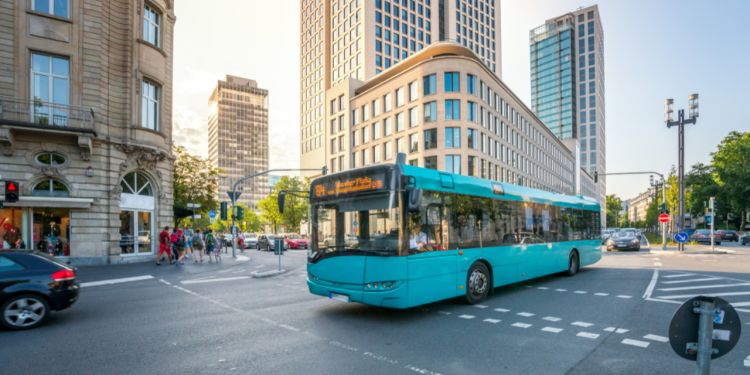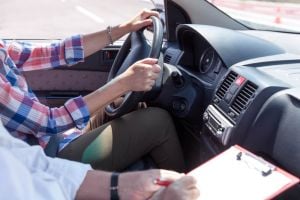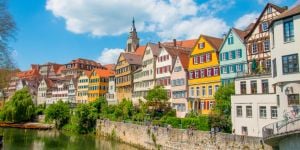
Residents of Frankfurt move around mainly by public transport as it is the most cost and time-efficient way to get around the city. Frankfurt is a busy city due to its reputation as Germany's primary financial center, as well as many tourist attractions, including world-class museums, unique culinary experiences, and stunning urban nature
The safe, reliable, and structured public transport system in Frankfurt is operated by the Rhine-Main Transport Association (RMV) and Verkehrsgesellschaft Frankfurt (VGF) and is made of the subway, tram, train, and bus lines. Tickets for public transport are relatively affordable, and public transport is accessible to people with disabilities.
Subway (U-Bahn) and Train (S-Bahn) in Frankfurt
The subway and train network is made of nine lines each, and whereas the subway is mostly used for travel within Frankfurt, the train connects Frankfurt with the wider Rhein-Main area (i.e., the Frankfurt/Rhine-Main Metropolitan Region). Frankfurt's (and Hesse's) busiest station is the Frankfurt Central Station (i.e., Frankfurt Main Hauptbahnhof) in the heart of the city, from where you can board the subway, intercity trains, buses, and taxis.
Important:
Visit the RMV website for updates on railway closures for construction, disruptions in daily schedules, special offers (e.g., the nine-Euro-ticket for the summer months), and other news regarding public transportation. Also, contact RMV for lost property, feedback, and complaints.
Useful links:
Buy weekly, monthly, and annual tickets online
Trams and buses in Frankfurt
Even though buses are a little less popular than the subway and trains, they are great for night travel, given there are routes that operate 24/7 at very affordable prices. Night buses (i.e., Nachtbus) are recognized by the letter “N” preceding the bus number, and the price of the ticket does not change during the night. Buses serve some stops that other means of transport don't, as they stop more frequently along the route. If you are new in Frankfurt, buses can help you visualize the city and place yourself on its map, compared to the subway, which only takes you from A to B without allowing you to collect images of the journey. To spot a bus stop, look for a circular yellow sign on a high pole with two green “H” letters. Busier bus stops have a shelter and a seat, and most bus stops have electronic boards with real-time schedules and waiting periods.
Good to know:
You can purchase your bus ticket directly from the driver.
Tickets and travel fares in Frankfurt
The ticketing system of public transportation in Frankfurt is very practical as you can use different means of transport and lines with a single ticket which will take you all the way to your destination as long as you don't interrupt your journey and take breaks. Besides single tickets, there are daily and weekly tickets, as well as monthly and annual passes for frequent commuters. Ticket prices depend on several factors, including the time of the journey, type of traveler (i.e., senior, adult, child, student, tourist, group of people), lines to be covered (e.g., express buses), and services required (e.g., first class).
Good to know:
Tickets can be purchased at ticket machines (i.e., Fahrkartenautomaten) found at different stops, online (not the case for single tickets), via mobile applications, and on the bus directly from the driver.
Cycling in Frankfurt
Frankfurt has a decent cycling network with over a dozen of picturesque cycling routes for leisure. However, cycling as a way of commuting to work or running errands is also possible and surely the most eco-friendly way to go. You can either rent a bike for long term, use a bike-sharing app, or buy an affordable second-hand bike through Expat.com's Frankfurt classifieds. Also, it is possible to take your bike on public transport, usually for free, as long as there is space and your trip occurs outside of peak hours.
Good to know:
Some of the leisure bike rides require good fitness conditions and are for advanced cyclists and higher-end bicycles.
We do our best to provide accurate and up to date information. However, if you have noticed any inaccuracies in this article, please let us know in the comments section below.











